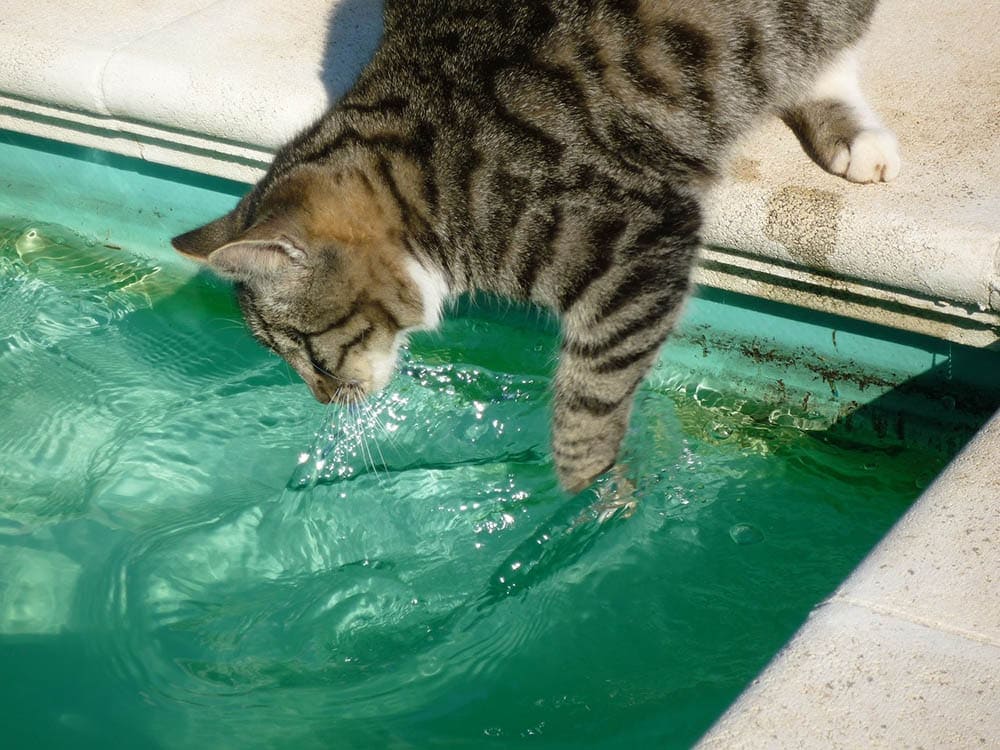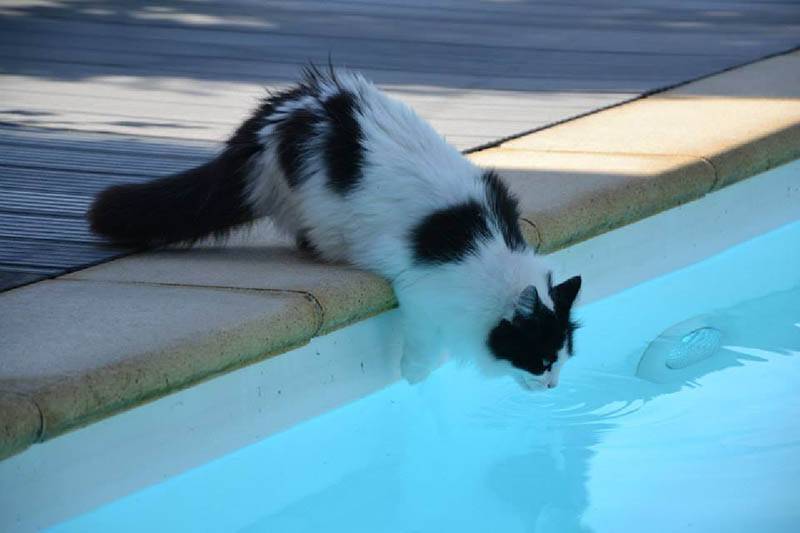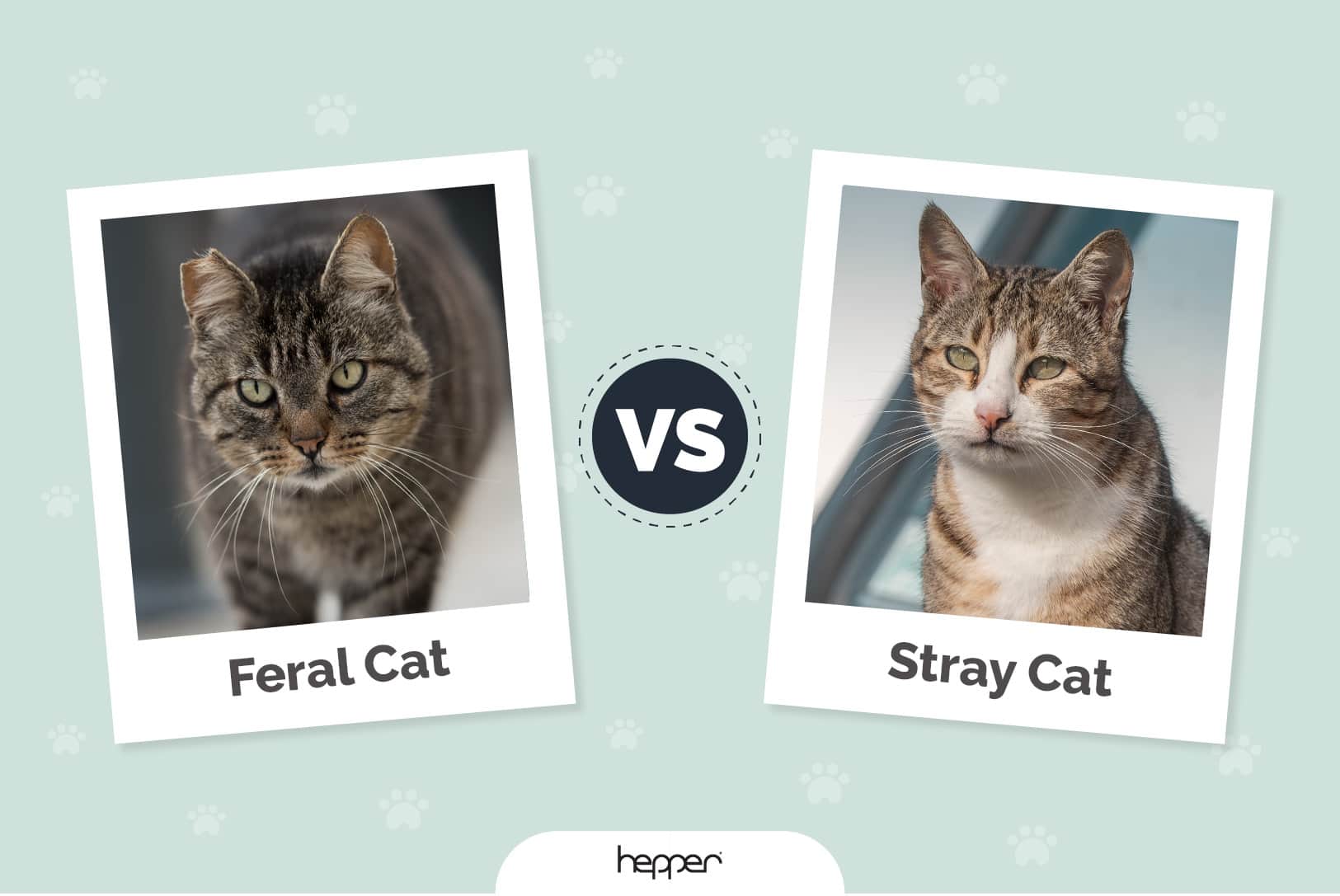My Cat Drank Pool Water, What Should I Do? Vet Reviewed Facts & FAQs

Updated on

Cats that drink pool water might experience gastrointestinal discomfort because of the chlorinated water, so the best advice is to keep a close eye on them and contact your vet if you are worried at any point. How upset your cat’s stomach is will depend on how much it drank and the chlorine dosage in the pool. So, let’s take a closer look at the potential risks of pool water and what you can do to keep your cat safe.
What Should You Do If Your Cat Drinks Pool Water?
Your cat could experience mild gastrointestinal discomfort, so you might notice they’re uncomfortable or have a mild case of diarrhea or vomiting. These side effects shouldn’t last long, and they are likely to make a full recovery.
If you are worried, or the signs are continuing, your cat is at risk of becoming dehydrated so contact your vet. Cats can also get sick from pool water that has not been maintained. Chlorine levels that are too low, for example, might expose your cat to microorganisms that could make them sick.
One bacteria that can be found in pools is E. Coli, which could make your cat very sick. However, it is not common for cats to pick up serious E. Coli infections from pool water. Gastrointestinal signs such as vomiting, diarrhea and poor appetite are the signs usually seen if a cat has ingested contaminated pool water.
Is Chlorine Toxic?
The biggest risk to your cat is if they were to ingest the concentrated form of chlorine, before you add it to the pool. Not only can it cause damage to their eyes and skin and burn their mouth and throat, but it is also toxic. However, the likelihood of this happening is slim because the scent won’t be particularly appealing. Nonetheless, you should always keep chemicals in their original containers and in safe places that children and pets can’t reach.
Once the chlorine is in the pool, it will be diluted, and the likelihood it will cause chlorine poisoning is very slim. Your cat is at more risk of drinking from a standing pool of contaminated water than from a maintained swimming pool.

How to Stop Your Cat From Drinking Pool Water
Your best option is to cover your pool when you aren’t using it. If it is uncovered, keep some fresh water in a shady area to reduce your cat’s chances of drinking pool water. If you notice them going to drink from the pool, calmly redirect them to their water bowl in the shade.
Curiosity might tempt your cat to see what you’re doing if you’re in the pool because you’re about to swim or are cleaning it, so it might be wise to keep it indoors if you feel you can’t distract them away from the water.
Final Thoughts
A small amount of pool water won’t cause problems for most felines. However, cats shouldn’t drink pool water; if they do, they may experience mild discomfort. Chlorine is toxic in its concentrated form, so it’s essential to keep it in a safe place away from your cat. Most cats will only show mild signs and fully recover quickly if they have ingested any pool water, but be sure to keep an eye on them because the signs may vary depending on how much water it drank and how clean the pool is. If you notice any worrying side effects, contact your vet straight away for a check-up.
Featured Image Credit: Pixabay












